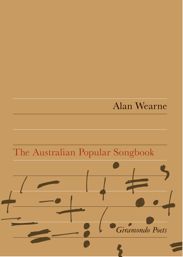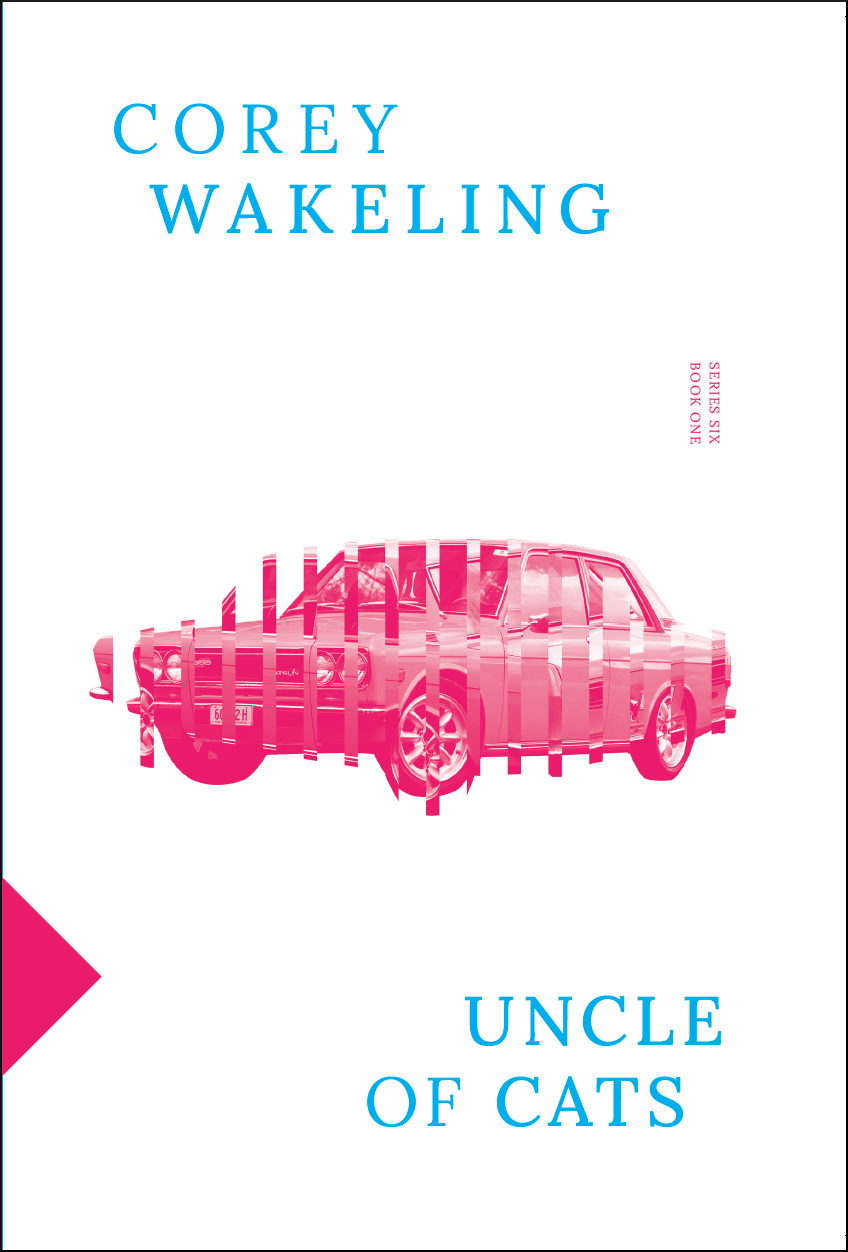The Australian Popular Songbook by Alan Wearne
Giramondo Publishing, 2008
It seems to me that a poem should – in general – be a self-contained unit, either easily understood or a puzzle that contains the key to its solution. I'm happy to make exceptions for poems written in different eras or countries – such poems might need annotations to compensate for unfamiliar historical or cultural contexts. It's surprising, then, how hard it is to understand the poems in Alan Wearne's latest collection, The Australian Popular Songbook, which bases itself largely in 20th-century Australian popular culture.
This collection is arranged in three sections. The first section, 'The Australian Popular Songbook', takes its poems' titles from Australian songs from different eras ('The Road to Gundagai', 'Eagle Rock' and 'Come on Aussie' are all represented). The second section, 'The Metropolitan Poems', features poems that are based around urban Australian locations such as Illawarra, Fitzroy and Knox City. The third section contains a single long free verse poem, 'Breakfast with Darky', told from the perspective of an ex-communist schoolteacher.
To understand Wearne's poems one needs to understand the cultural references being made, references that are highly idiosyncratic. Unfortunately he hasn't done enough to make sure that those not in the know have enough information to follow him. If you don't know the song or the suburb being written about, you're left with no real way into the poem.
When the reader does have an idea about or a familiarity with the cultural references being made, the poems become clearer. Having grown up in the seventies in a Labor-voting household, I could follow the poem based on the 1972 election-winning Australian Labor Party slogan 'It's Time'. I have seen the Blue Murder television series that is referenced by 'Bound for Botany Bay', which made it easy enough to understand. These two poems reference events that loom large in recent Australian history, but these days it's possible to get by without knowing about Gough Whitlam or Roger the Dodger, and that's the problem.
It seems to me you'd have to be either amazingly well-read or precisely of Alan Wearne's generation (and interested in the same things as him) to have the right combination of knowledge, memory and experiences to understand or empathise with every poem in this book.
The sense of connection that comes from having favourite songs in common or sharing common experiences is a powerful feeling, one that poetry does well to tap into. However, the idiosyncratic nature of musical taste and personal histories makes it unlikely that any one song or recent historical moment will be deemed identifiable by a majority of people. Relying so heavily on the emotional effect of music or memory is a big risk for a poet, and in Wearne's case it hasn't paid off.
Aspects of this collection seem to imply that Wearne is aware of the need to give his poems further explanation. Occasionally he uses epigrams to provide context. A note, for example, indicates that 'Bless This House' is in the voice of
-a Uniting Church minister ordained in middle age whose lover teaches at a girls school
The problem is that knowing this, or knowing that 'Bourke Street on Saturday Night' is written in the voice of a popular 1930s Essendon footballer, doesn't add all that much.
A further attempt to clarify and elaborate is made with the list of notes at the back of the book, but it fails to shed much extra light. The notes read more like asides than explanations. In the notes for 'Down Under', for example, Wearne explains that Terry Clark was co-leader of the Mr. Asia Drug Syndicate. Unless you know about the Mr. Asia Drug Syndicate, this information adds little to the understanding of the poem.
Many of these poems are written with fixed rhyme and meter – presumably to make them more song-like, in keeping with the title of the collection. This stylistic decision has logic to it, but Wearne's rhymes occasionally back him into awkward corners. In 'Goodbye Melbourne Town' he rearranges the phrase 'parlez vous' to force an unlikely rhyme:
English, Anglais, vous errr parlez?
Aura-wrapped in Walkman Marley
where we off to- Phuket? Bali?
In 'Poem for Cathy Colborne', he resorts to referencing an archaic dance step in a poem about 1990s Fitzroy:
Then one winter, doped on Codral
some poor loser simply sooked:
'Madame, may I dance this quadrille?'
'Sorry sport my card is booked.'
These missteps don't happen often, but when they do they underscore the overwhelming formality of the poems that makes them less musical and more rigid than they were doubtlessly intended.
The key ingredient missing from the intended musicality of these 'songs' is just that – music. While comparisons are fairly made between poetry and music on many levels, poems are not music. There is literally no music in a poem. Poems do not have the same subconscious access to emotional immediacy that music does, no matter how hard they try. A poem is certainly able to achieve the equivalent of lyrics, but lyrics are only part of a song. Thus any attempt to imitate songs with poetry can only ever partly succeed.
The final section, 'Breakfast with Darky', works better than the rest of these poems, perhaps because it is the least song-like piece. It's a single free verse poem, which removes it from the stylistic constraints of the rest of the book. Its seven-page length, compared to the mainly one- or two-page poems in the rest of the book, allows more room to create a sense of context and gives the reader time to get to know the narrator. This poem feels like it plays to Wearne's strengths (given his history as a verse novelist) in a way that the rest of the book does not. After the rapid-fire rhythm, rhyme and referencing of the first two sections of this collection, the structural freedom and leisurely pace of this final poem comes as something of a relief.
While conceptually The Australian Popular Songbook is an interesting idea, its execution has resulted in the poetic equivalent of an enthusiastic and tangential conversation that you're not directly participating in, between people you don't know, that you lack the mutual acquaintances and experiences to properly follow. For all you know this conversation might be incredibly intelligent and insightful, but from this perspective it's too hard to tell. I guess you just had to be there.















